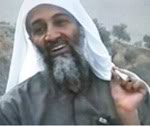U.S. defends warrantless domestic spying By SARAH KARUSH, Associated Press Writer
55 minutes ago
DETROIT - The government's warrantless domestic spying faced its first courtroom test Monday, with the Bush administration arguing that the program is well within the president's authority but that proving it would require revealing state secrets.
U.S. District Judge Anna Diggs Taylor heard arguments in a case brought by the American Civil Liberties Union against the National Security Agency. The ACLU wants the program halted immediately, arguing that it violates the rights to free speech and privacy.
The judge gave no indication of when she might rule.
The ACLU said the state-secrets argument is irrelevant because the Bush administration already has publicly revealed enough information about the program for Taylor to rule.
But government attorney Anthony J. Coppolino told the judge that the case cannot be decided based on a "scant public record."
"This case does not involve easy questions," he said. "It's a case that requires a robust factual record."
Coppolino alluded several times to a classified court filing, which Taylor indicated she had not yet reviewed. In that brief, he said, the government has demonstrated that the program "is narrowly and specifically focused on al-Qaida."
The plaintiffs do not have access to the classified brief, and even the judge would have to make a special request and travel to Washington to read it, said Ann Beeson, the ACLU's associate legal director and the lead attorney for the plaintiffs.
Monday's hearing was the first time the constitutionality of the eavesdropping was argued in court. A similar lawsuit was filed in federal court in New York by the Center for Constitutional Rights, but no hearings have been held there yet.
The administration has acknowledged eavesdropping on Americans' international communications without first seeking court approval. President Bush has said the eavesdropping is legal because of a congressional resolution passed after the Sept. 11, 2001, attacks that authorized him to use force in the fight against terrorism.
The parties in the ACLU lawsuit, who include journalists, scholars and lawyers, say the program has hampered their ability to do their jobs because it has made international contacts, such as sources and potential witnesses, wary of sharing information over the phone.
"We're not arguing that the administration — the executive office — doesn't have the power to protect us by spying," said Detroit attorney Noel Saleh, a plaintiff in the case and president of the Arab Community Center for Economic and Social Services in Dearborn. "What we're arguing is that they don't have the power to protect us by violating the Constitution."
Coppolino said that the plaintiffs' beliefs that they are among the likely targets are insufficient to establish that they have been directly affected by the program.
"You don't get standing by saying the president has a program, and I'm concerned it might cover me," he told the judge.
U.S. defends warrantless domestic spying
Moderator: Dictators in Training
4 posts • Page 1 of 1
U.S. defends warrantless domestic spying
“The more I study science the more I believe in God.” -- Albert Einstein
- Narrock
- NT Patron

- Posts: 16679
- Joined: Mon Mar 15, 2004 11:54 pm
- Location: Folsom, CA
Havent we allready beaten this shit to death. Get a warrent or stay or you cant look/listin. When you can start days before you actually get it i dont see any reason why they should have the right.
WHITE TRASH METAL SLUMMER
Why Immortal technique?
Perhaps its because I am afraid and he gives me courage.
Why Immortal technique?
Perhaps its because I am afraid and he gives me courage.
-

Spazz - Osama bin Spazz

- Posts: 4752
- Joined: Tue Mar 16, 2004 7:29 pm
- Location: Whitebread burbs
spazz wrote:Havent we allready beaten this shit to death. Get a warrent or stay or you cant look/listin. When you can start days before you actually get it i dont see any reason why they should have the right.
Wow your mind is completely melted from drugs.
Last edited by Jay on Mon Jun 12, 2006 4:04 pm, edited 1 time in total.
- Jay
Re: U.S. defends warrantless domestic spying
The plaintiffs do not have access to the classified brief, and even the judge would have to make a special request and travel to Washington to read it, said Ann Beeson, the ACLU's associate legal director and the lead attorney for the plaintiffs.
this stinks like bullshit. how can a judge make a ruling on a case when the defendants won't let anyone look at a crucial piece of evidence?
compost the rich
-

brinstar - Cat Crew

- Posts: 13142
- Joined: Tue Mar 09, 2004 1:45 pm
- Location: 402
4 posts • Page 1 of 1
Who is online
Users browsing this forum: No registered users and 14 guests
